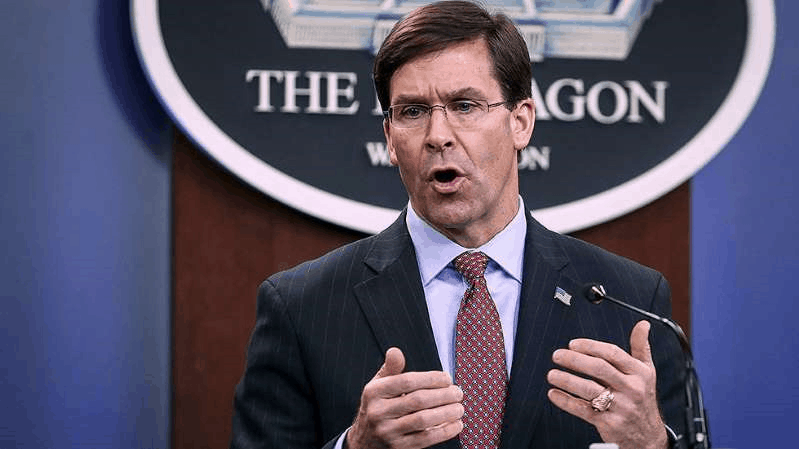US seeking Iraq's permission for missile defenses to protect troops

The United States is working to get the Iraqi government's "permission" to put Patriot missile defense systems in the country to protect U.S. forces there from possible Iranian attacks, Defense Secretary Mark Esper said Thursday.
"One of the things we need to do is make sure we have permission from the host government, and that's one of the matters we have to work on and work through," Esper told reporters at a Pentagon press conference. "We need the permission of the Iraqis."
The U.S. military did not have Patriots deployed at al-Asad airbase in Iraq, which houses American troops, during a Jan. 8 missile attack from Iran.
At least 50 U.S. service members have since been diagnosed with traumatic brain injuries (TBIs) following the missile strike, which was retaliation for the killing of Gen. Qassem Soleimani, who led Iran's elite Quds Force.Since Soleimani's killing, U.S. leaders are preparing for any future retaliations from Iran. The Defense Department also has Patriot systems to protect forces in Kuwait, Saudi Arabia, Qatar, and the United Arab Emirates.
Joint Chiefs of Staff Chairman Mark Milley, who spoke alongside Esper, said there were also logistical aspects to work out in moving Patriot systems into Iraq.
"A Patriot battalion is not a small organization, it's relatively large, so the mechanics of it all have to be worked out, and that is in fact ongoing," Milley said.
Milley also said that the service members suffering from TBIs caused by the Iran missile strikes have all been diagnosed with mild cases.
"The diagnosis we have so far for all of the folks that had been diagnosed to date is 'mild traumatic brain injury,'" Milley said. "That's the diagnosis that's been reported to us so far."
The newest numbers on troops suffering TBIs come in the wake of President Trump's comments downplaying the injuries, saying the troops had "headaches" but nothing "very serious." That prompted the Veterans of Foreign Wars to demand an apology for what the group said were comments that minimized the dangers of TBI.
Asked about Trump's comments, Esper said he's spoken with the president and that he "is very concerned about the health and welfare of all our service members, particularly those who were involved in the operations in Iraq, and he understands the nature of these injuries."
Photo: © Getty Images US seeking Iraq's permission for missile defenses to protect troops




